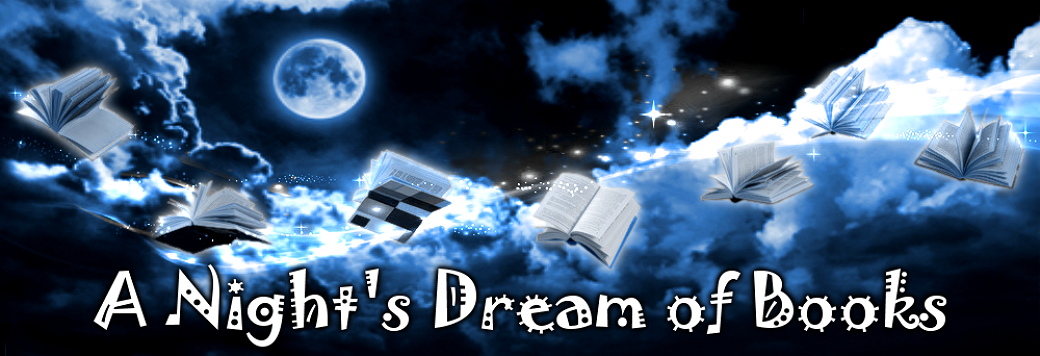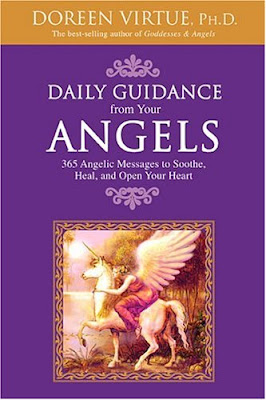The Spontaneous Healing of Belief: Shattering the Paradigm of False Limits
Gregg Braden
Trade Paperback, 217 pages
Hay House, Inc.
April 1, 2008
Metaphysics, New Age, Nonfiction, Philosophy, Psychology, Self-Help, Science, Spirituality
Source: Purchased from Barnes & Noble
Book Synopsis: What would it mean to discover that everything from the DNA of life, to the future of our world, is based upon a simple Reality Code—one that we can change and upgrade by choice? New revelations in physics and biology suggest that we’re about to find out!
A growing body of scientific evidence suggests that our universe works like a Consciousness Computer. Rather than the number codes of typical software, our Consciousness Computer uses a language that we all have, yet are only beginning to understand. Life’s reality code is based in the language of human emotion and focused belief. Knowing that belief is our reality-maker, the way we think of ourselves and our world is now more important than ever!
For us to change the beliefs that have led to war, disease, and the failed careers and relationships of our past we need a reason to see things differently. Our ancestors used miracles to change what they believed. Today we use science. The Spontaneous Healing of Belief offers us both: the miracles that open the door to a powerful new way of seeing the world, and the science that tells us why the miracles are possible, revealing: why we are not limited by the “laws” of physics and biology as we know them today
Once we become aware of the paradigm-shattering discoveries and true-life miracles, we must think of ourselves differently. And that difference is where the spontaneous healing of belief begins.
Braden is a very well-known figure in New Age circles, as well as beyond. He's certainly a very engaging writer, with a smoothly flowing prose style, as well as fascinating insights, which he backs up with scientific data. Furthermore, this book is very well-researched and annotated.
I have discovered, however, that books in the New Age category do not completely satisfy me. While their philosophical views are frequently innovative and interesting, there's always something in these books that gives me pause, that conflicts with my Christian values, no matter how open-minded I might want to be. Furthermore, if one wants to leave religious values aside, these books also conflict with rational values, at times.
I am still interested in reading such books, however, because there's much food for thought in them. Depending on a reader's religious and/or philosophical views, I would advise proceeding with intellectual caution.
Braden follows a pattern laid down by other New Age authors in years past -- using science as validation for New Age philosophy. Fritjof Capra, the Austrian-born American physicist, was probably one of the first to do this, with his The Tao of Physics, published in 1975. Another example is Migene Gonzalez-Wippler, the Puerto Rican cultural anthropologist, with the book A Kabbalah for the Modern World, first published in 1974, with subsequent revised editions. Both of these authors linked New Age philosophy to quantum physics. So does Braden. I can see why they have all made this connection, too, as quantum physics has been a revolution not only in science, but also in philosophy, which is necessarily affected by new scientific discoveries.
Braden's basic theme is that, as most New Agers say, it is our beliefs that shape our reality. Citing data from quantum research, he states that we, and everything around us, "are made of a shared field of energy that was scientifically recognized in the 20th century and is now identified by names that include the field, the quantum hologram, the mind of God, nature's mind, and the Divine Matrix." (Introduction, pg. xiii, quoting from Braden's The Divine Matrix: Bridging Space, Miracles, and Belief, pg. 54)
Elaborating on this, Braden gives a brief, simplified explanation of the world of quantum mechanics, in which energy can behave as either visible particles or invisible waves. He then proceeds to what seems like a logical conclusion: if energy, which our bodies are made of, can behave in what appear to be -- according to the laws of science -- miraculous ways, then we, too, can do the same. Although this is admittedly an interesting, even exciting concept, I have to ask myself whether it holds up as a logical conclusion. Still, it does stimulate one to think about it.
Another of the concepts presented in this book is found in Chapter One, titled "A New View of Reality: the Universe as a Consciousness Computer". The idea of the universe as a thinking computer was originally put forth in the 1940s by Konrad Zuse, who developed the first computers. Braden interprets this to mean that "everything is information" (pg. 17), and the universe is really the product of a huge program that has been running for a very long time. If human beings can come to know the program's code, they will then know "the rules of reality itself". (pg. 18)
This chapter also discusses the idea that the universe is made up of patterns, as exemplified by fractals.
Chapter Two expands on the concept of the universe as a consciousness computer through a discussion of how this computer can be programmed. The method involves beliefs and feelings, according to Braden. A thought, he states, is just that -- a thought -- until it's energized by emotion to create a feeling. He defines a feeling as "the union of what we think with the fuel of our love or fear for our thought." He then proceeds to the conclusion that belief is a form of feeling.
This chapter also includes a short discussion of the function of thoughts, wishes, affirmations, and prayers.
Chapters 5 and 6 deal with techniques for 'shattering the paradigm of false limits' and 'rewriting one's reality code'. Quite honestly, I haven't gotten to these chapters, as I have been unable to finish the book. I don't normally write a review for a book that I have not finished reading, but I felt it important to do so with this one.
It was Chapter 4 that changed everything for me. This chapter gets to the crux of the matter -- why I cannot accept New Age philosophy in its entirety.
The chapter is titled, "What Do You Believe? The Great Question at the Core of Your Life". This 'great question' does indeed strike at the core of everyone's life, but I totally disagree with the author's view of just how it does so.
Ironically, Braden states, in the same chapter, something that I do believe is true, and he backs it up with medical data. To quote: "Our beliefs about unresolved hurt can create physical effects with the power to damage and even kill us." (pg. 111) I have read this same thing elsewhere, and do agree with it. The heart is not just an organ that pumps blood; it is the seat of emotion. Every painful emotional event we undergo can and does have lasting physical effects, unless we learn to forgive, which is not an easy task at all. I'm glad that Braden raises this point here.
It's right after this, though, that Braden gets to the question I mentioned above, which is the following: "Do you believe that there is one source for everything that happens in the world, or do you believe that there are two opposite and opposing forces -- good and evil -- one that 'likes' you and one that doesn't?" (pg. 116) Braden's own answer points to a reconciliation or acceptance of both forces in life. He states that, when we see the world as a battleground, then life becomes a battle. According to him, this then affects us physically, as we therefore see the world as not being a safe place. Braden goes on to say that seeing life in terms of light and darkness, good and evil, means that we must see the world as a very scary place. Instead, we should see the world as a wonderful, beautiful place in which to live. He also brings up the point that judging people in terms of light and darkness will affect all of our relationships.
While there might a be a grain of truth in everything the author brings up above, the idea of reconciling good and evil, light and darkness, in short, of going beyond this polarity, is what really bothers me. Braden himself recognizes that such an idea can be very shocking to some people. On page 128, he states the following: "It flies in the face of everything that they've ever been taught -- and may even sound like heresy!" That is precisely how I feel about this concept.
Every Christian denomination, whether Catholic or Protestant, draws a very clear line between good and evil. There is no possible reconciliation between them. The Bible itself clearly demonstrates the difference between the two, although, ironically, God in the Old Testament does not always behave in ways consistent with a good and loving deity. Still, Christianity is founded on the basic idea that good and evil are, indeed, locked in a battle that will only end with the second coming of Jesus Christ.
Leaving religious beliefs aside, however, the concept of 'reconciling' light and darkness, good and evil, goes against reason, as well. It's very evident that the two cannot be blended, or joined together, in any way. While there may be gray areas at times, there are, for the most part, very firm boundaries between the two forces. This is logical, and evident to any reasoning mind.
As i skimmed through this book in order to refresh my memory before writing my review, I also realized that Braden's mentioning of the universe as a thinking computer, which can be programmed through our beliefs and intentions, coupled with strong emotions, entirely leaves out the idea of a personal God. Of course, those who are not theists or even deists will not be troubled by this at all. As a matter of fact, I do think that I might need to dwell on this further, as the fact of consciousness being present obviously indicates the existence of some type of being. Braden doesn't make it quite clear whether this 'consciousness' is merely the material universe, or whether it is an immanent deity that might also be construed as transcendent.
This is obviously a rather deep book, in spite of its easy-to-read, elegant style, so i need to go back to it and read it more slowly, carefully analyzing it as I go along. Therefore, I might return with a second review of it. However, I'm sure, as of this writing, that I won't be changing my mind in regards to the question of 'reconciling' good and evil.
In spite of my strong religious and rational reservations about this book, I have given it four stars, because Braden successfully engages the reader on very interesting topics that do bear some thinking and investigation. He is anything but boring, and is able to present even the most seemingly outrageous topics in a way that will not get him classified as being 'fringe' or 'wacky' in any way.
For those who share my own reservations, this might prove to be a reading experience that will leave them with some mixed feelings about the book, as has been the case with me. Still, I do think it's an intellectually stimulating book, well worth the read.
Braden's basic theme is that, as most New Agers say, it is our beliefs that shape our reality. Citing data from quantum research, he states that we, and everything around us, "are made of a shared field of energy that was scientifically recognized in the 20th century and is now identified by names that include the field, the quantum hologram, the mind of God, nature's mind, and the Divine Matrix." (Introduction, pg. xiii, quoting from Braden's The Divine Matrix: Bridging Space, Miracles, and Belief, pg. 54)
Elaborating on this, Braden gives a brief, simplified explanation of the world of quantum mechanics, in which energy can behave as either visible particles or invisible waves. He then proceeds to what seems like a logical conclusion: if energy, which our bodies are made of, can behave in what appear to be -- according to the laws of science -- miraculous ways, then we, too, can do the same. Although this is admittedly an interesting, even exciting concept, I have to ask myself whether it holds up as a logical conclusion. Still, it does stimulate one to think about it.
Another of the concepts presented in this book is found in Chapter One, titled "A New View of Reality: the Universe as a Consciousness Computer". The idea of the universe as a thinking computer was originally put forth in the 1940s by Konrad Zuse, who developed the first computers. Braden interprets this to mean that "everything is information" (pg. 17), and the universe is really the product of a huge program that has been running for a very long time. If human beings can come to know the program's code, they will then know "the rules of reality itself". (pg. 18)
This chapter also discusses the idea that the universe is made up of patterns, as exemplified by fractals.
Chapter Two expands on the concept of the universe as a consciousness computer through a discussion of how this computer can be programmed. The method involves beliefs and feelings, according to Braden. A thought, he states, is just that -- a thought -- until it's energized by emotion to create a feeling. He defines a feeling as "the union of what we think with the fuel of our love or fear for our thought." He then proceeds to the conclusion that belief is a form of feeling.
This chapter also includes a short discussion of the function of thoughts, wishes, affirmations, and prayers.
Chapters 5 and 6 deal with techniques for 'shattering the paradigm of false limits' and 'rewriting one's reality code'. Quite honestly, I haven't gotten to these chapters, as I have been unable to finish the book. I don't normally write a review for a book that I have not finished reading, but I felt it important to do so with this one.
It was Chapter 4 that changed everything for me. This chapter gets to the crux of the matter -- why I cannot accept New Age philosophy in its entirety.
The chapter is titled, "What Do You Believe? The Great Question at the Core of Your Life". This 'great question' does indeed strike at the core of everyone's life, but I totally disagree with the author's view of just how it does so.
Ironically, Braden states, in the same chapter, something that I do believe is true, and he backs it up with medical data. To quote: "Our beliefs about unresolved hurt can create physical effects with the power to damage and even kill us." (pg. 111) I have read this same thing elsewhere, and do agree with it. The heart is not just an organ that pumps blood; it is the seat of emotion. Every painful emotional event we undergo can and does have lasting physical effects, unless we learn to forgive, which is not an easy task at all. I'm glad that Braden raises this point here.
It's right after this, though, that Braden gets to the question I mentioned above, which is the following: "Do you believe that there is one source for everything that happens in the world, or do you believe that there are two opposite and opposing forces -- good and evil -- one that 'likes' you and one that doesn't?" (pg. 116) Braden's own answer points to a reconciliation or acceptance of both forces in life. He states that, when we see the world as a battleground, then life becomes a battle. According to him, this then affects us physically, as we therefore see the world as not being a safe place. Braden goes on to say that seeing life in terms of light and darkness, good and evil, means that we must see the world as a very scary place. Instead, we should see the world as a wonderful, beautiful place in which to live. He also brings up the point that judging people in terms of light and darkness will affect all of our relationships.
While there might a be a grain of truth in everything the author brings up above, the idea of reconciling good and evil, light and darkness, in short, of going beyond this polarity, is what really bothers me. Braden himself recognizes that such an idea can be very shocking to some people. On page 128, he states the following: "It flies in the face of everything that they've ever been taught -- and may even sound like heresy!" That is precisely how I feel about this concept.
Every Christian denomination, whether Catholic or Protestant, draws a very clear line between good and evil. There is no possible reconciliation between them. The Bible itself clearly demonstrates the difference between the two, although, ironically, God in the Old Testament does not always behave in ways consistent with a good and loving deity. Still, Christianity is founded on the basic idea that good and evil are, indeed, locked in a battle that will only end with the second coming of Jesus Christ.
Leaving religious beliefs aside, however, the concept of 'reconciling' light and darkness, good and evil, goes against reason, as well. It's very evident that the two cannot be blended, or joined together, in any way. While there may be gray areas at times, there are, for the most part, very firm boundaries between the two forces. This is logical, and evident to any reasoning mind.
As i skimmed through this book in order to refresh my memory before writing my review, I also realized that Braden's mentioning of the universe as a thinking computer, which can be programmed through our beliefs and intentions, coupled with strong emotions, entirely leaves out the idea of a personal God. Of course, those who are not theists or even deists will not be troubled by this at all. As a matter of fact, I do think that I might need to dwell on this further, as the fact of consciousness being present obviously indicates the existence of some type of being. Braden doesn't make it quite clear whether this 'consciousness' is merely the material universe, or whether it is an immanent deity that might also be construed as transcendent.
This is obviously a rather deep book, in spite of its easy-to-read, elegant style, so i need to go back to it and read it more slowly, carefully analyzing it as I go along. Therefore, I might return with a second review of it. However, I'm sure, as of this writing, that I won't be changing my mind in regards to the question of 'reconciling' good and evil.
In spite of my strong religious and rational reservations about this book, I have given it four stars, because Braden successfully engages the reader on very interesting topics that do bear some thinking and investigation. He is anything but boring, and is able to present even the most seemingly outrageous topics in a way that will not get him classified as being 'fringe' or 'wacky' in any way.
For those who share my own reservations, this might prove to be a reading experience that will leave them with some mixed feelings about the book, as has been the case with me. Still, I do think it's an intellectually stimulating book, well worth the read.










